Project Description
Programme Specification
Subject Aims
- History students will create, appreciate and critically interpret a wide range of texts.
- They will appreciate and respect how diverse values, beliefs and traditions have contributed to the communities and culture in which they live.
- Students will value what it means to be an active citizen, with rights and responsibilities to local and wider contexts.
- They will value local, national, and international heritage, understand the importance of the relationship between past and current events and the forces that drive change.
- To understand the origins and impact of social, economic and environmental aspects of the world around them.
- To observe and evaluate empirical events and processes and draws valid conclusions and deductions.
- The student uses technology and digital media tools to learn, communicate, work and think collaboratively and creatively in a responsible and ethical manner.
Rationale for Subject
History is about exploring human experience over time and how that experience has shaped the world we live in today. By asking questions of available evidence, students can make rational, informed judgements about human actions.
Having a ‘big picture’ of the past helps to develop our historical consciousness and allows us to see patterns of change. The study of change relates to the fullness of human experience over time including politics, government, laws, society, economics, culture, beliefs and ideas.
Learning in History supports students in making informed decisions, a respect for the truth and evidence, and the ability to construct and communicate coherent, logical arguments on matters of historical significance.
Subject Topics / Syllabus Content
There are three strands within History:
Strand One: The Nature of History
This strand is a formational strand, supporting students to explore the concepts, practise the skills and consider the values and attitudes that inform the discipline of history and the work of the historian. This will help students to acquire a ‘big picture’ of the past and an understanding of the importance of evidence that will enhance their historical consciousness.
Strand Two: The History of Ireland
This strand is a contextual strand, where students will apply their conceptual understanding and historical skills to an exploration of key personalities, issues and events in Irish history, including local history.
Strand Three: The History of Europe and the Wider World
This strand is a contextual strand, where students will apply their conceptual understanding and historical skills to an exploration of key personalities, issues and events in the history of Europe and the wider world.
Assessment
There is one examination at Common level, set and marked by the State Examinations Commission (SEC). The examination will be 2 hours and will take place in the June of third year.
Students will also complete two Classroom-Based Assessments.
- The Past in my Place – completed in second year
- A life in Time – completed in third year
CBA1
Theme: The Past in my Place is a structured, evidence-based enquiry into a historical aspect or theme relating to the locality, place or personal/family history of the student.
Format: Students will present their findings in a format of a display (similar to which they would encounter in a museum, heritage centre or library).
CBA2
Theme: A Life in Time is a structured, evidence-based enquiry into the historical life and experiences of a person of interest.
Format: Students will present their research in the form of a written record (e.g. essay, blog, letter to a newspaper, a speech, a script for a documentary, an encyclopaedia entry).
The Classroom-Based Assessments are recorded on the Junior Cycle Profile of Achievement.
Classroom-Based Assessments allow students to develop and demonstrate the following skills:
- Engage with areas of personal historical interest
- Work with evidence and research information using a range of methods
- Analyse data and evidence to make informed value judgements and decisions
- Organise information and plan logically
- Communicate clearly and effectively
- Develop their historical consciousness
- Collaborate with others on tasks
- Reflect on their own learning
Through Classroom-Based Assessment students will develop their knowledge, understanding, skills and values, thereby achieving the learning outcomes in History.
Possible Career Options
History allows students to develop a range of transferable skills and the knowledge learnt can be used across a range of different careers.
Here is a list of careers that History can support:
- Publishing and Media – careers paths include journalist, editor, writer, TV/radio host or print production manager
- Law – Lawyer, barrister, solicitor or magistrate
- Public Sector – A councillor, politician, civil servant, or a social worker
- Hospitality and Tourism – Tour guide, museum curator or a tour operator
- Education – History teacher, lecturer or a private tutor
- Other careers include: – Data analyst, IT consultant, archivist, accountant or librarian,
Useful Links
Junior Cycle History Curriculum – History (curriculumonline.ie)
Careers in history – Career paths in history Irish (historians.ie)






